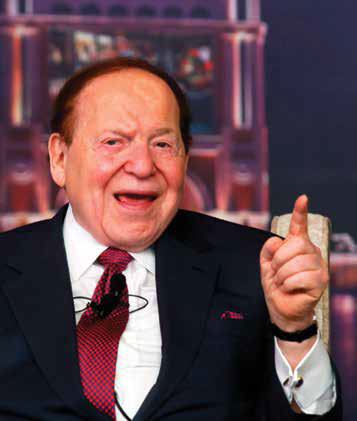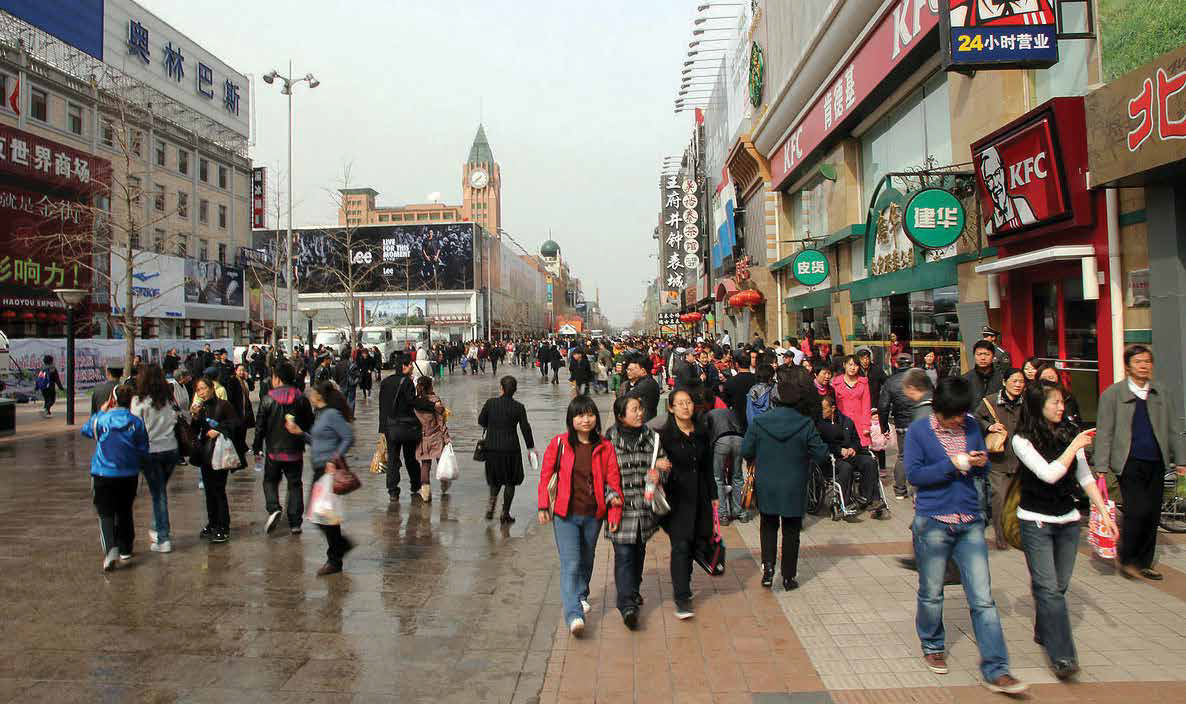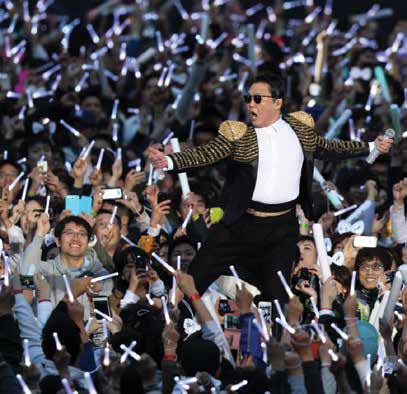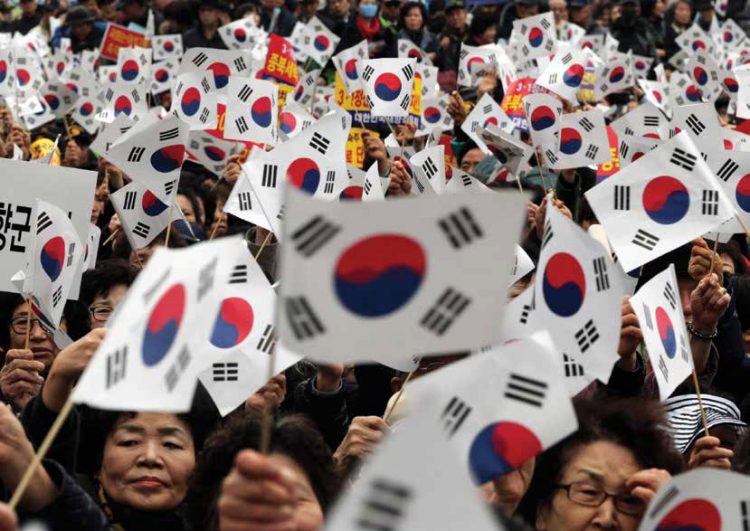South Korea looks poised to grab a big chunk of the region’s Chinese VIP gaming action
Where Macau’s casinos go, South Korea’s follow. Last year, Las Vegas Sands appointed international football star David Beckham as its brand ambassador in Asia. In June this year, South Korean casino operator Paradise named Jose Mourinho, the outspoken manager of English Premier League squad Chelsea, to promote its brand. It’s the latest in a string of initiatives by South Korea’s gaming industry to replicate the magic formula of Macau and comes as Chinese high rollers have recently started shying away from the former Portuguese enclave.
Macau posted a 5.8% year-on-year decline in VIP gaming revenue in the second quarter to US$6.71 billion, the biggest percentage decline since Q2 2009, although mass-market revenue still maintained robust growth of 35% in the quarter to US$4.45 billion, accounting for nearly 40% of all gaming revenue.
A major driver of Macau’s VIP sector slowdown is Chinese President Xi Jinping’s crackdown on corruption. Sheldon Adelson, chairman of Las Vegas Sands and its local subsidiary Sands China, summed it up on the company’s second-quarter earnings call: “As in the past as I have experienced, that type of crackdown creates uncertainty, and that uncertainty temporarily slows the VIP market in Macau. Let me emphasize—it’s temporary and it’s cyclical.” Other contributing factors are tight liquidity faced by the junkets, the recent weakness in China’s property sector and general uncertainty surrounding China’s economy.

The scale and intensity of China’s campaign to root out corruption among officials at all levels has stepped up this year. Beijing announced at the end of July the graft investigation of former domestic security chief Zhou Yongkang, the most senior Chinese official to face a corruption probe since the Chinese Communist Party came to power in 1949. Hong Kong, like Macau a Chinese special administrative region, is also suffering the effects of the clampdown, with its retail sales down five straight months through June, the longest losing streak since the global financial crisis in 2009.
Citigroup analyst Anil Daswani highlighted “the panic” created by the anti-corruption campaign as the cause of a 13% year-on-year drop in July Macau VIP revenue. Mr Adelson pointed out, however, that “It [the campaign] doesn’t affect people coming to Singapore, and we’ve seen an increase in Chinese customers.” Still, even though there was a 9.5% increase in gaming revenue at Mr Adelson’s Marina Bay Sands, and the number of VIP players was up, rolling chip volume there plunged 27% year on year.
Elsewhere in Asia, the high-roller segment has charted a different path. NagaCorp, operator of Cambodia’s biggest gaming operation, NagaWorld, reported a 20.1% increase in its rolling chip turnover in the first half of this year. NagaWorld’s VIP operations are targeted at high rollers from China and North Asia. In South Korea, Paradise, which runs five foreigners-only casinos, said its table drop from Chinese VIPs surged 24.9% year on year to 1.15 trillion won (US$1.11 billion) in the second quarter, accounting for 66.1% of its total drop.
“It is the anti-corruption crackdown that is causing Macau VIP to be soft. In all other markets—Korea, Singapore, Cambodia, Philippines, Las Vegas, etc.—the Chinese VIP market is growing,” says Grant Govertsen of Union Gaming Research Macau. “Ultimately, we have a situation where wealthy VIP gamblers are laying low as it relates to Macau. Clearly, they do not have a problem going elsewhere (outside of the purview of the PRC) to gamble. However, when we compare Macau to any of these other markets, we’re talking apples and oranges. The typical VIP customer outside of Macau in all likelihood is a lower-value customer than a typical VIP customer in Macau.”
The Macau VIP slowdown comes amid a warning by Pansy Ho, co-chair of Macau casino operator MGM China, that the city faces intensifying competition from rivals in the region. The daughter of local casino mogul Stanley Ho, Ms Ho told Bloomberg News recently that Macau is gradually losing its appeal for mainland Chinese, who are increasingly opting to travel more frequently and farther afield. Still, more than 10.2 million mainlanders visited Macau in the first half of this year, 14.7% more than the year-ago period.
The current lack of new resorts ahead of the opening of the second wave of Cotai megaresorts starting in 2015 is also limiting revenue growth in the short-run, suggests Erika Cain, analyst at Canadabased Scotiabank, while “industry investment continues to shift to emerging markets in Asia”. Ms Cain says, “International tourist arrivals and gaming revenue in Macau and Singapore are expected to be tempered over the coming years by gaming liberalization and new casino developments across Asia.”
THE LEADING CONTENDER
Of the existing Asian gaming markets beyond Macau, South Korea in particular is tipped to rise on growing visitation from China, with the progressive easing of visa requirements on mainlanders visiting the country as well as warming bilateral ties, with Xi Jinping having met his South Korean counterpart, Park Geun-hye, five times over the past year.
The rise in Chinese customers has driven the annual growth of casino revenue in South Korea by 7.5% in the five years through 2013, and the growth will be quickened to 11% a year in the 2014-16 period, according to analysts at Macquarie Equities.
Since last September, Beijing and Shanghai residents buying into time share properties in Soth Korea can apply for three-year multi-entry visas rather than single-entry visas each time they visit. In March, Seoul unveiled its “Korea Priority Card” scheme for tourists, granting them five-year visas as long as they have spent more than US$30,000 in the country in the past five years and deposited at least 50 million won (US$46,700) in banks there, according to The Korea Times.
Eased visa requirements, coupled with the popularity of Korean music and soap operas across the continent, has sent the number of Chinese visiting South Korea to an all-time high of 4.3 million last year, up 52% from 2012 and accounting for 35.5% of the country’s inbound tourism, according to the Korean Tourism Organization. In the first half of this year, arrivals surged a further 53.8% to nearly 2.67 million, accounting for 40.3% of the country’s total tourists. If this trend continues, as many as 8.4 million Chinese will visit South Korea in 2018, predicts Martin Craigs, chief executive of the Pacific Asia Travel Association.
“Korea is ideally located to benefit from structural growth in China’s outbound tourism,” says Tyler D.G. Ahn, analyst at Standard Chartered Securities Korea. Mr Ahn expects the number of Chinese VIP players coming to the country will rise at an average annual rate of 15% in the 2013-16 period, faster than the average pace of regional rivals. Mr Ahn and fellow Standard Chartered analyst Philip Tulk, based in Hong Kong, predict in a gaming sector report released in July that South Korea will become the second-best-performing gaming market in Asia in the next three years, ranking behind Macau but ahead of Singapore and the Philippines. The key rationale behind their forecast is gaming demand from northeastern China, including Beijing and Shanghai, an area they say is “underserved”
“Northeastern China accounts for 30% of the mainland China population but 50% of its high-net-worth individuals (assets of over US$1.5 million). This underserved gaming demand in northeastern China represents reserve head room for market growth of Korea operators,” the report states, adding South Korea is well-positioned to cater to this area because of its geographical proximity.

The rising cost of gambling in Macau has also driven some Chinese players to look for other places to lay their bets. “Macau casino operators have been raising the minimum bet size considerably in recent years to maximize profits amid the limited availability of [gaming] tables,” says Hong Kong-based analyst D.S. Kim of BNP Paribas Securities. “Minimum bet sizes at mass tables in Macau are now more than HK$500 per hand, which is more than six times [that of ] Las Vegas’ or Korea’s and is equivalent to 18% of the average monthly disposable income in China.” The analyst believes Korea’s 16 foreigners-only casinos can become “a good alternative to Macau for relatively low-end Chinese gamblers”.
Chinese players who would be classed under the “premiummass” category in Macau receive VIP treatment in Korea—for example, Paradise offers free flights and chauffeur-driven Rolls- Royce pickups to players with buy ins of US$50,000, according to Lee Hyuk-byung, head of the company’s casino business. Grand Korea Leisure, which operates three foreigners-only casinos in Seoul and Busan under the Seven Luck brand, doubled its staff devoted to Chinese high-rollers to 60 last year in a bid to capitalize on the growth.
MEGARESORTS ON THE WAY
In a bid to kick-start the country’s foreigners-only market, worth more than US$1.3 billion last year (Kangwon Land, the only one of the country’s 17 casinos open to locals, generated an additional $1.3 billion), the South Korean government gave preliminary approval in March to a joint venture between Las Vegas-based Caesars Entertainment and Indonesia’s Lippo Group to build a US$794 million integrated casino resort on Yeongjong Island, a special economic zone located near the country’s main international airport,
with a scheduled 2018 opening. The approval came just nine months after the government had initially turned down an application from Caesars, reportedly over concerns about the company’s industryleading debt load. Yeongjong is also slated to include a gaming resort being developed by a joint venture between Paradise and Japanese gaming machine manufacturer Sega Sammy. Meanwhile, a consortium including Genting Singapore and Chinese property developer Landing International Development envisions a casino project on Jeju, a resort island that already hosts eight casinos and is a favored destination among Chinese, who enjoy visa-free access there for up to 30 days.
The Paradise-Sega Sammy resort will play up its “Korean-ness,” because “Korea is a hot place right now” for Chinese travelers, says Choi Jong-hwan, chief executive of the joint venture. “The main content that we will be showing to the Chinese VIPs will be Korean culture,” adds Mr Choi.

“Korea’s foreigners-only casino market size is only 3% of Macau’s, or about 20% of Singapore’s, in terms of revenue … because Korean casinos do not appeal as a ‘destination place’ for most gamblers, given their tiny scale, lack of hotels and non-gaming offerings and absence of [a] cluster [of resorts],” observes Mr Kim of BNP. “We anticipate the [openings of ] integrated resorts from 2017 will alleviate the bottlenecks, in turn unlocking potential and enabling operators to tap into an already large addressable market.”
He believes South Korea’s planned integrated resorts and strategic location between the world’s second- and third-largest economies—China and Japan—could turn it into “another China growth story” in the same vein as Macau. He forecasts the country’s gaming revenue could grow at least 85% between 2014 and 2018.
Road bumps have already emerged, however. The Genting- Landing project was due to break ground in June but that was postponed to the third quarter after newly elected Jeju Gov. Won Heeryong has demanded to review the project despite the green light given it by the previous one. Jeju authorities have toughened their stance on growing Chinese investments on the island because of fears of speculation, though Mr Won stressed they “welcome healthy investments”.
Another potential hurdle to the market’s development is the ban on locals playing at the upcoming megaresorts. Steve Park, managing director of KORE, a Korea-based consultancy focused on the local casino industry, warns that unless the restriction is lifted ,Korean players as well as investment in the country’s casinos could be siphoned away by Japan if and when it legalizes and develops casinos. Korean officials have repeatedly stressed the ban will remain in place until “a national consensus” is achieved.
The Standard Chartered analysts add that casinos in Japan, along with planned resorts in Vladivostok on Russia’s Pacific coast—one of which is headed by Lawrence Ho, co-chairman of Macau casino operator Melco Crown Entertainment — would weaken South Korean’s grip on the northeastern China market.
But Mr Choi believes casino legalization in Japan could actually be the stimulus South Korea needs to expand casino access to locals. He points out: “Many of the Koreans will be traveling into Japan to play in the casinos [there], and at that time, maybe the Korean government could be thinking of putting in an ‘open’ casino.”





























